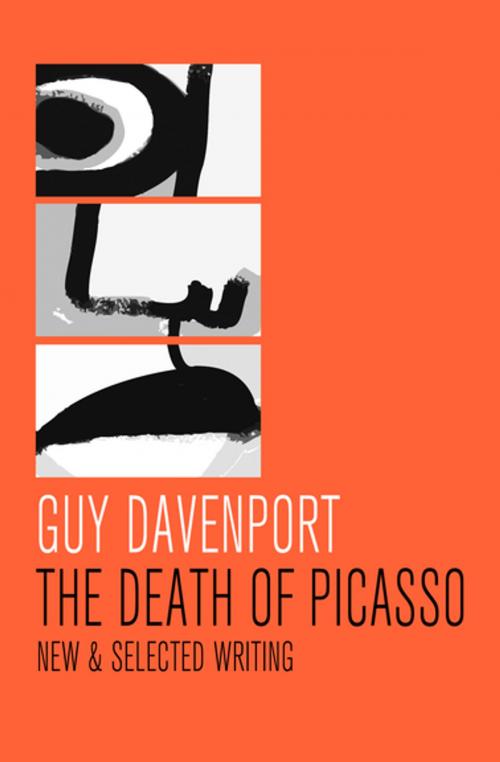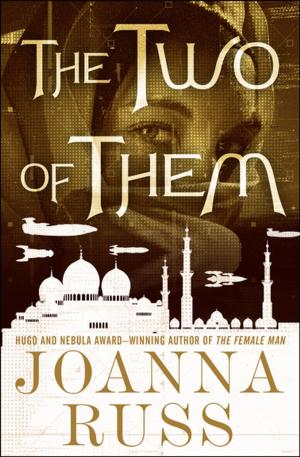The Death of Picasso
New & Selected Writing
Fiction & Literature, Essays & Letters, Essays, Nonfiction, Religion & Spirituality, Philosophy, Short Stories| Author: | Guy Davenport | ISBN: | 9781504019613 |
| Publisher: | Open Road Media | Publication: | September 1, 2015 |
| Imprint: | Open Road Media | Language: | English |
| Author: | Guy Davenport |
| ISBN: | 9781504019613 |
| Publisher: | Open Road Media |
| Publication: | September 1, 2015 |
| Imprint: | Open Road Media |
| Language: | English |
“Davenport writes with equal imagination and verve about the tanginess of an orange, the mystery of love, quantum physics, music, and a lashing rainstorm.” —Booklist
Featuring both short stories and critical pieces, The Death of Picasso exhibits the versatility and innovative thinking that drives all of Guy Davenport’s work. As a critic, he takes on topics such as Ruskin’s life and influences and Benson Bobrick’s history of English versions of the Bible, through which Davenport explores how translation has affected the text’s interpretation for centuries. Both his fiction and essays contribute to the eternal conversation on how the arts reflect, inform, and influence the human experience.
In his short stories, Davenport vividly evokes entire worlds—such as that of a regatta on the Thames or an air show in Northern Italy—with an eye for telling details that typically go unnoticed. Fact and fiction combine and shift forms throughout the collection, for instance, in “The Concord Sonata” when the author manipulates time and space to put thinkers like Thoreau, Wittgenstein, and W. E. B. Du Bois in conversation. Davenport’s uninhibited imagination and singular gaze reveal both the commonplace and the sublime in a new light.
“Davenport writes with equal imagination and verve about the tanginess of an orange, the mystery of love, quantum physics, music, and a lashing rainstorm.” —Booklist
Featuring both short stories and critical pieces, The Death of Picasso exhibits the versatility and innovative thinking that drives all of Guy Davenport’s work. As a critic, he takes on topics such as Ruskin’s life and influences and Benson Bobrick’s history of English versions of the Bible, through which Davenport explores how translation has affected the text’s interpretation for centuries. Both his fiction and essays contribute to the eternal conversation on how the arts reflect, inform, and influence the human experience.
In his short stories, Davenport vividly evokes entire worlds—such as that of a regatta on the Thames or an air show in Northern Italy—with an eye for telling details that typically go unnoticed. Fact and fiction combine and shift forms throughout the collection, for instance, in “The Concord Sonata” when the author manipulates time and space to put thinkers like Thoreau, Wittgenstein, and W. E. B. Du Bois in conversation. Davenport’s uninhibited imagination and singular gaze reveal both the commonplace and the sublime in a new light.















